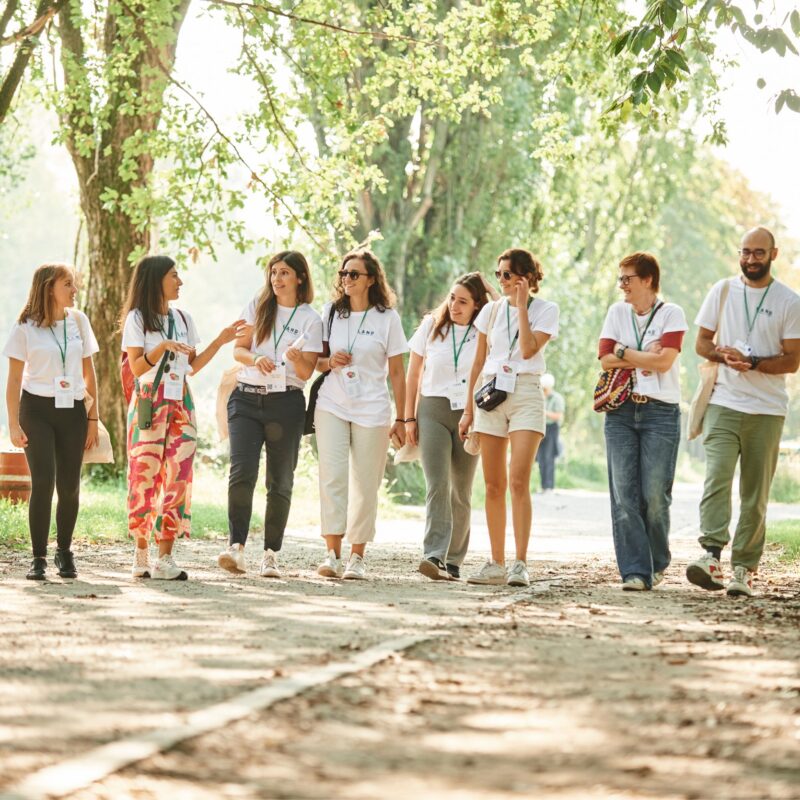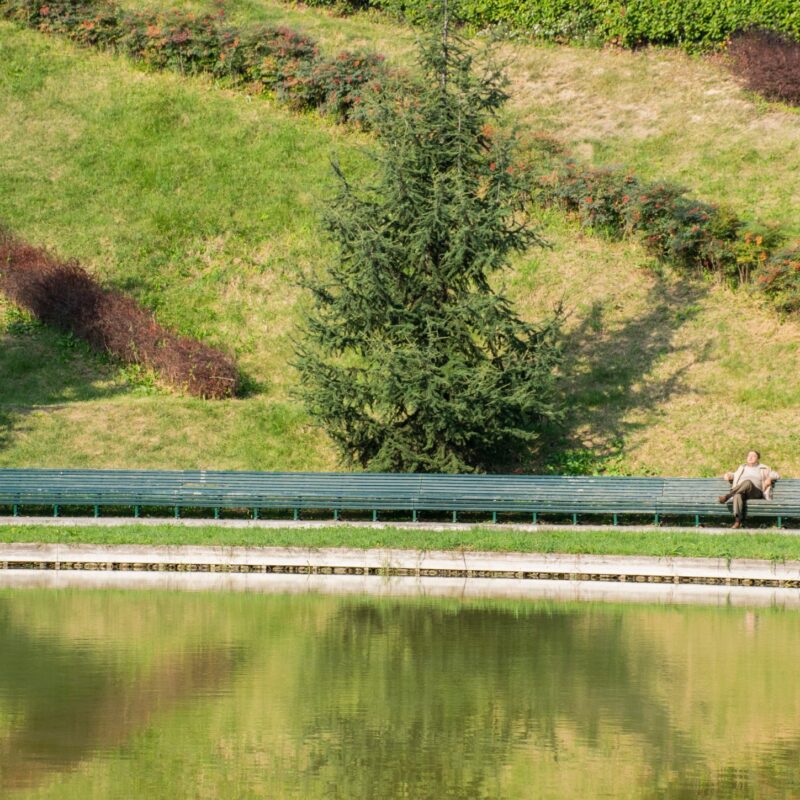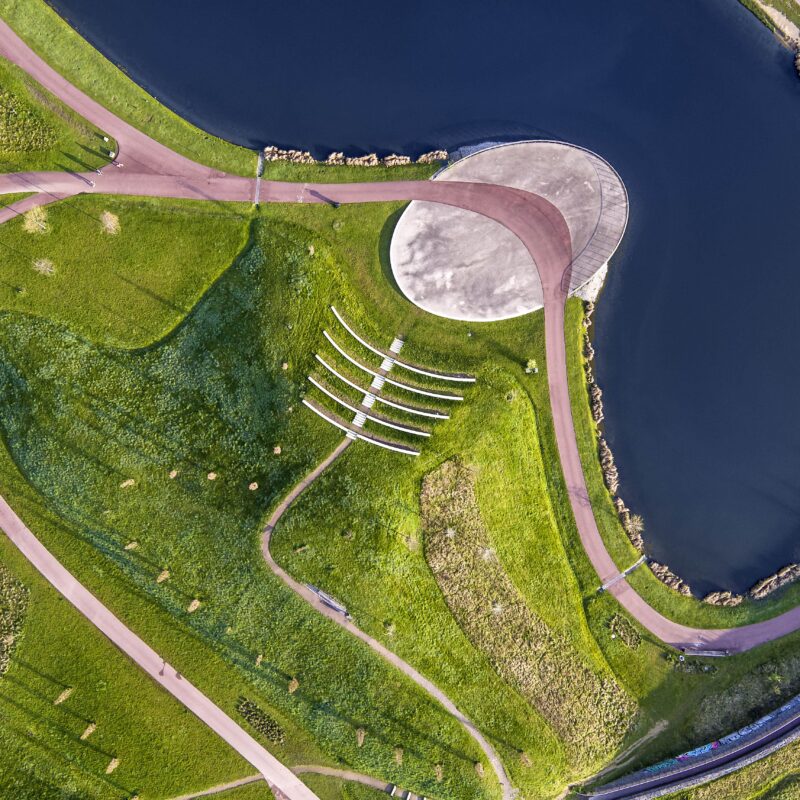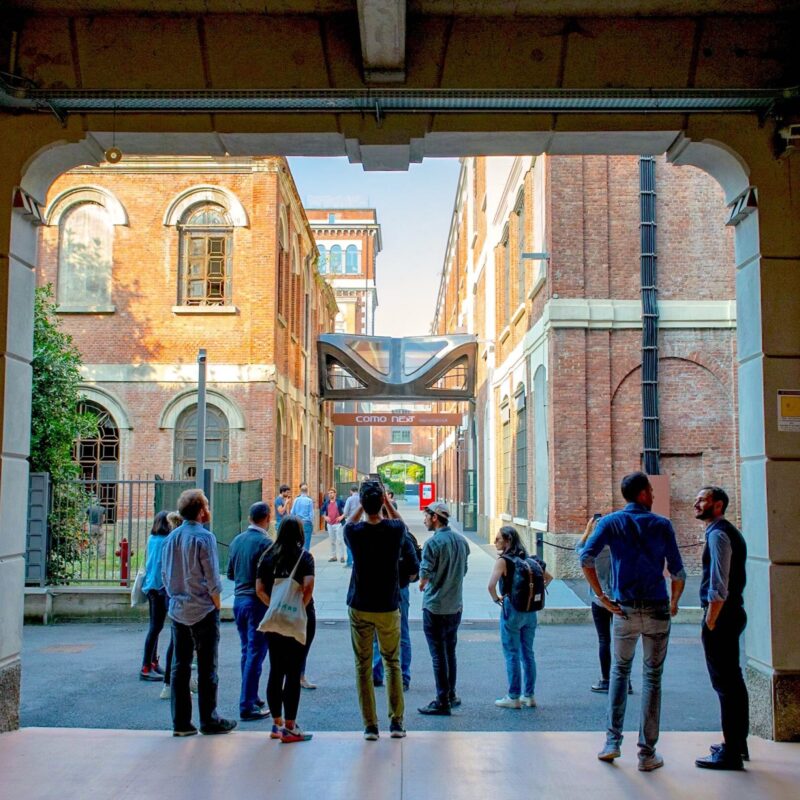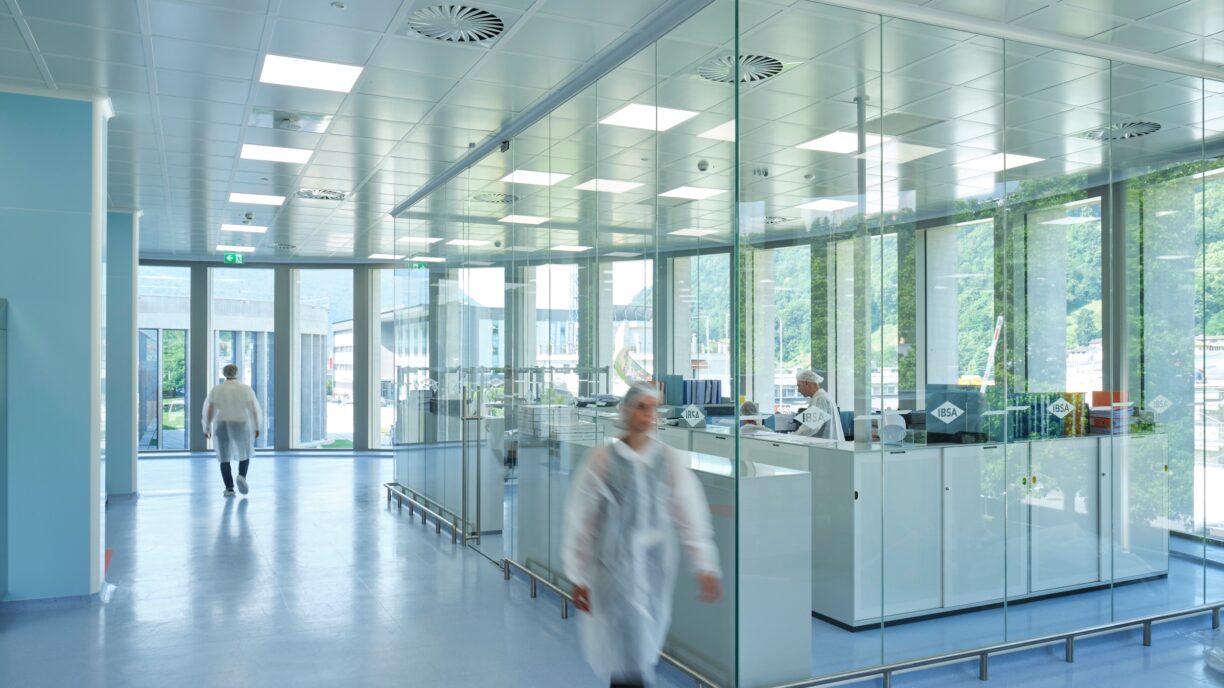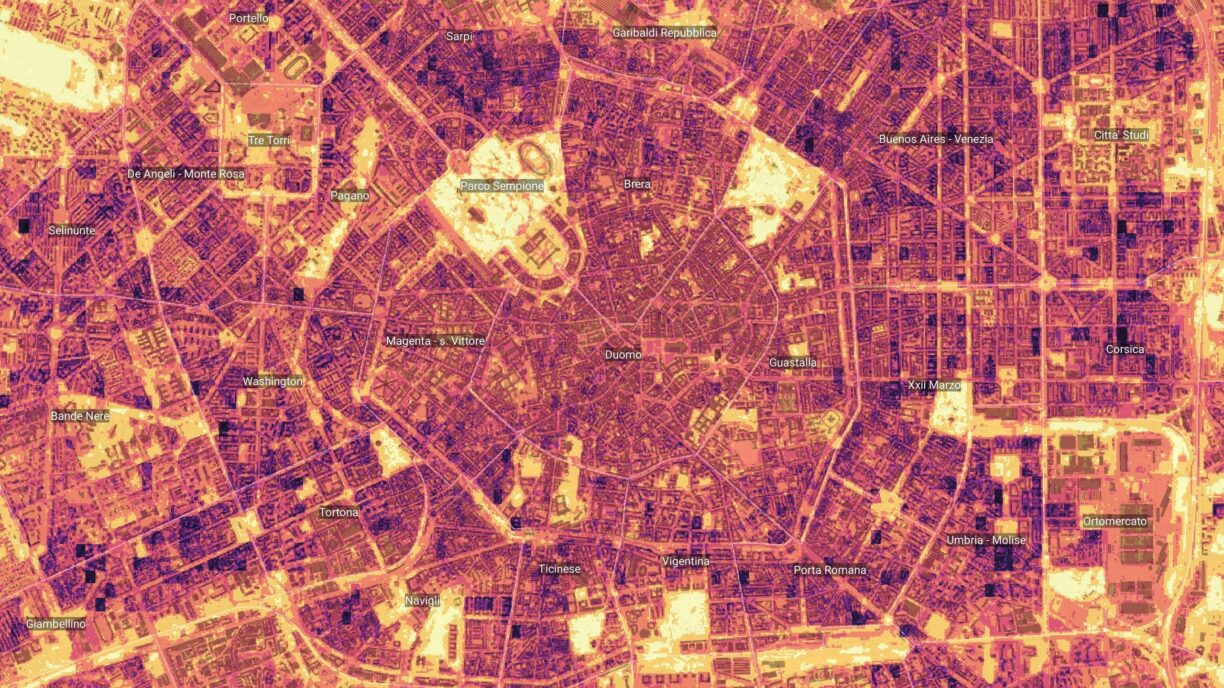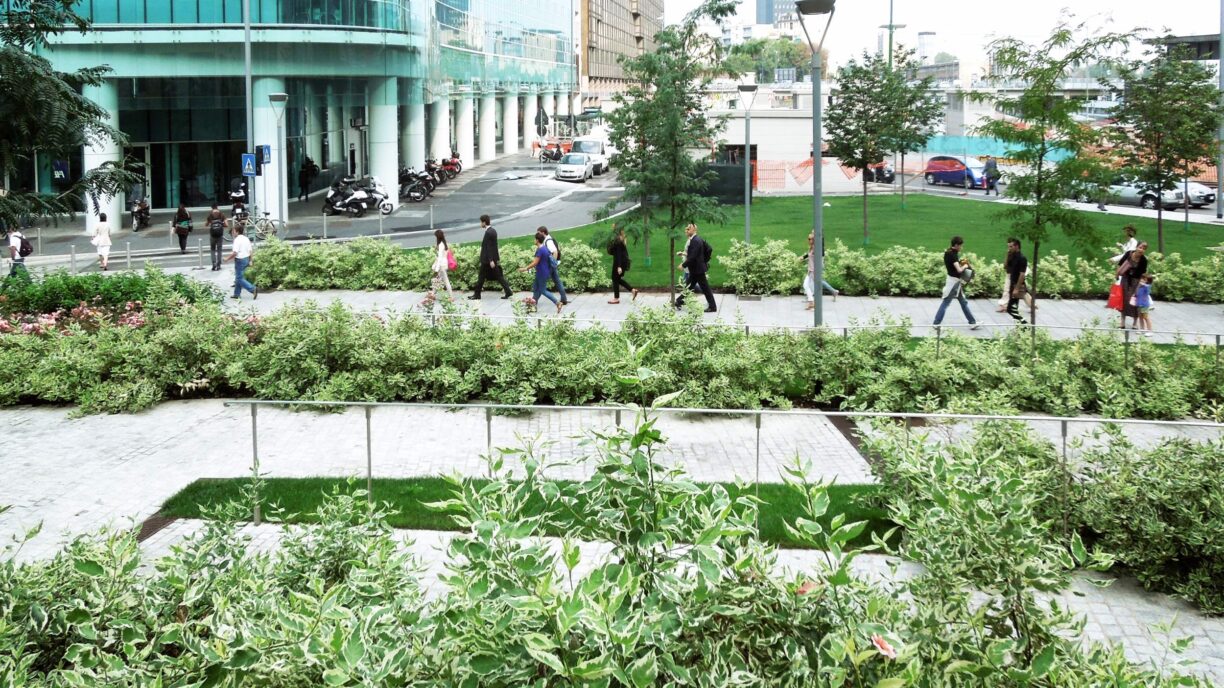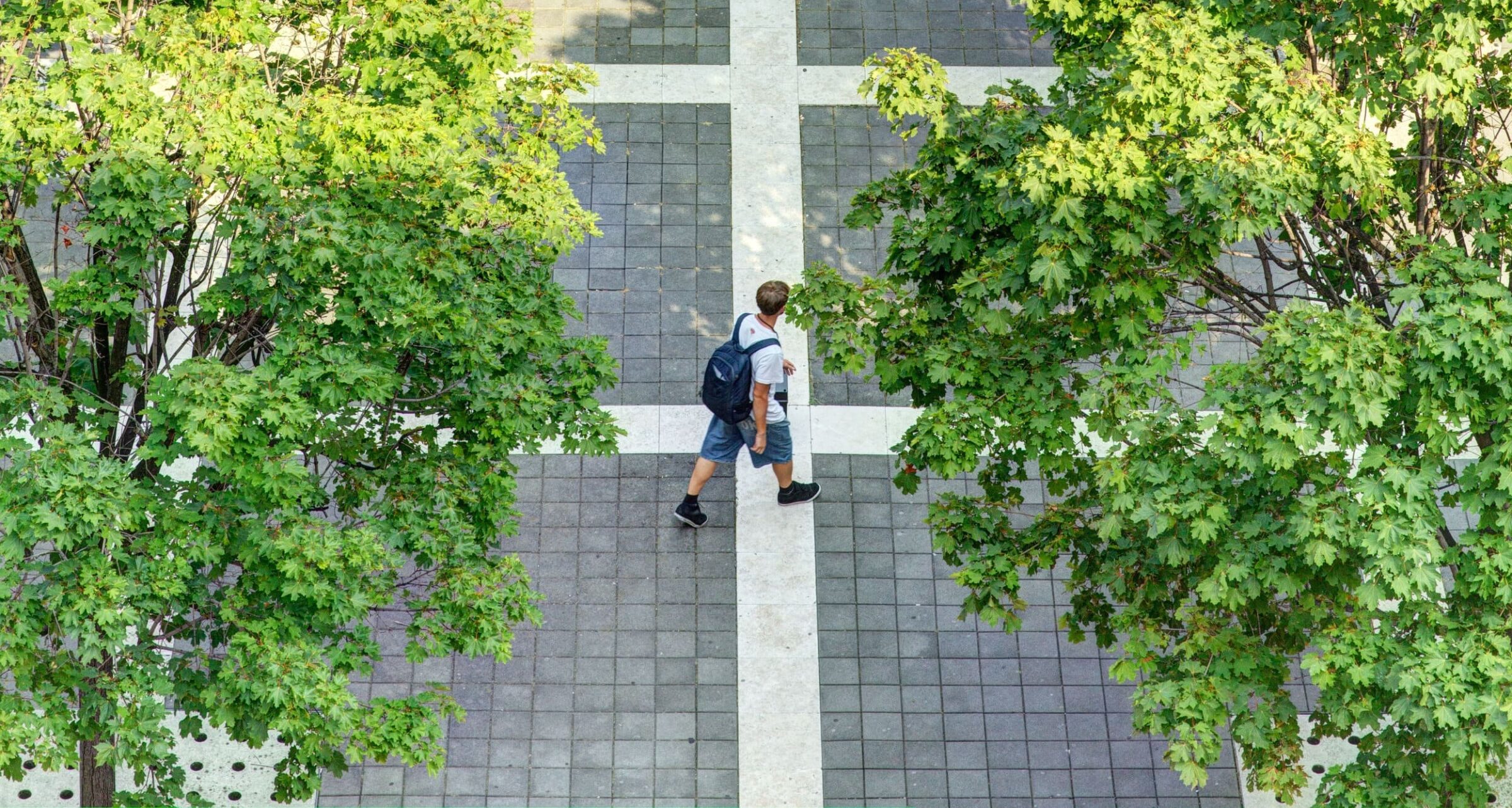
Pieces of a Great Mosaic
Milan as a Laboratory for Urban and Scientific Development.
More than a financial metropolis: Milan is a constantly evolving city of knowledge, research, and culture. About 200,000 students attend the eight universities in this Lombard city. New campuses (MIND, Bovisa) are under construction. And the MUSA project is implementing a program for the city and the region’s transition to environmental, economic, and social sustainability.
Planning for the future remains incomplete without knowledge and its implementation, without research and its networking. This is even more true for Milan, Italy’s economic and cultural engine, where an urban transformation has been underway for several years. In 2016, one year after Expo 2015, which in many ways represented a sort of turning point for Milan, the philosopher Salvatore Veca (father of Expo’s “Milan Charter”) expressed a dream: “Milan as an international city of knowledge.”
Milan has an extraordinary wealth of universities, research organizations, and cultural institutions, starting with its eight universities. At present, about 200,000 students attend the city’s universities, almost as many as in Paris. A little less than one tenth of them comes from abroad, a figure which is nevertheless less than the European average. Course offerings continue to increase: at Milanese universities, one course in three is international, and education in English is double the national average (22%).
A strong point of MUSA is the multiplicity of approaches, which helps provide a systemic response: from strengthening human capital to research conducted in synergy with industrial players, from actions aimed at economic growth in the local area to the active participation of communities.

Giovanna Iannantuoni, Rector of Milano-Bicocca
Universities are expanding, moving, transferring. At present there are two large campus projects. The new campus of the University of Milan, about 190,000 square meters in the MIND (Milan Innovation District) area, will accommodate more than 23,000 persons, including instructors, researchers, and students. And in the Bovisa district, where the Politecnico has already transferred several faculties, the North Campus is emerging on 32 hectares of land, based on a master plan from Studio RPBW (Renzo Piano), for which LAND handled the green portion.
Development of technologies for economic and circular sustainability, and promotion of hightech entrepreneurship: these are the two main objectives of the Politecnico di Milano within the MUSA ecosystem.
Finally, Salvatore Veca’s dream of Milan as a “city of knowledge, research and culture” seems to be coming true in an innovative way. Universities, institutions, and the business world, all united in a partnership of scientific and industrial excellence, are transforming Milan’s metropolitan area into a true ecosystem of innovation for urban regeneration. This, in a nutshell, is the MUSA (Multilayered Urban Sustainable Action) project, which was presented at the University of MilanoBicocca, one of the four universities in Milan (along with the Politecnico, Bocconi, and the state University of Milan), which is participating in this program for the city’s transition to environmental, economic and social sustainability.
MUSA is a challenge and invitation to innovation and collaboration, creating new scenarios destined to transform the very concept of the university and its relationships with local economic, political and social organizations.
There are six spokes, or areas of MUSA intervention: urban regeneration; big and open data in the life sciences; deep tech – entrepreneurship and technology transfer; economic impact and sustainable finance; sustainable fashion, luxury and design; innovation for sustainable and inclusive societies.
These six macro-issues will be the foundation for achieving concrete projects aimed at changing the face of the city: from waste management to green mobility, from creation of an incubation and acceleration center for startups to optimization of big data for the health and wellbeing of citizens. The true ambition, as repeated by the rector of Bicocca, Giovanna Iannantuoni, is to make the MUSA model “replicable at the national and European level.”
MUSA brings together universities, companies, and institutions so they can work at the local level to make Milan an increasingly sustainable and inclusive city, through the efforts of almost a thousand researchers.
Read other Articles from this Edition
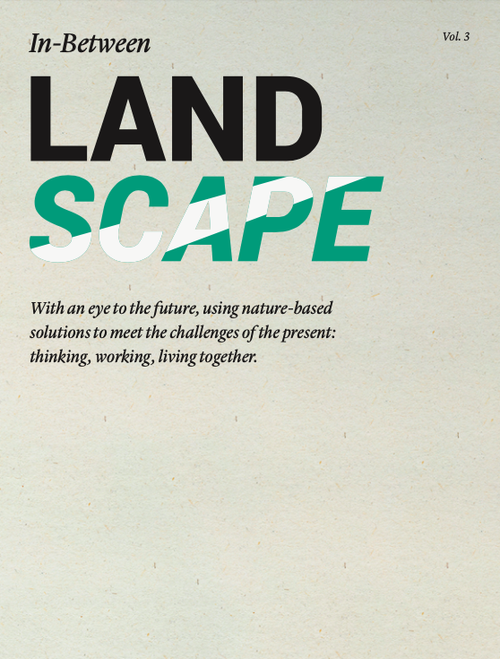
Would you like to receive this Edition of our LAND Magazine?
All mandatory fields are marked with a *
